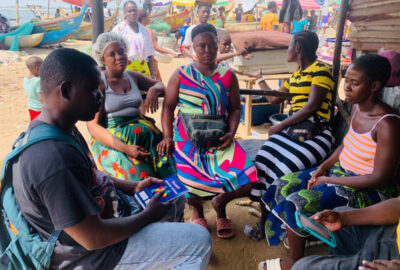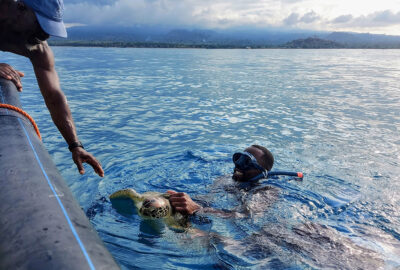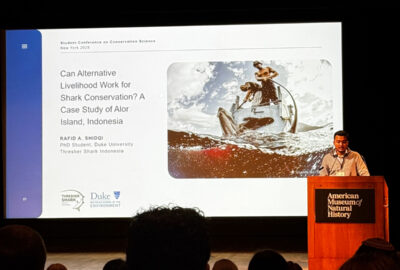2021 MCAF Year in Review Blog
By New England Aquarium on Thursday, January 27, 2022


This post is one of a series on projects supported by the New England Aquarium’s Marine Conservation Action Fund (MCAF). Through MCAF, the Aquarium supports researchers, conservationists, and grassroots organizations around the world as they work to address the most challenging problems facing the ocean.
By: Emily Duwan
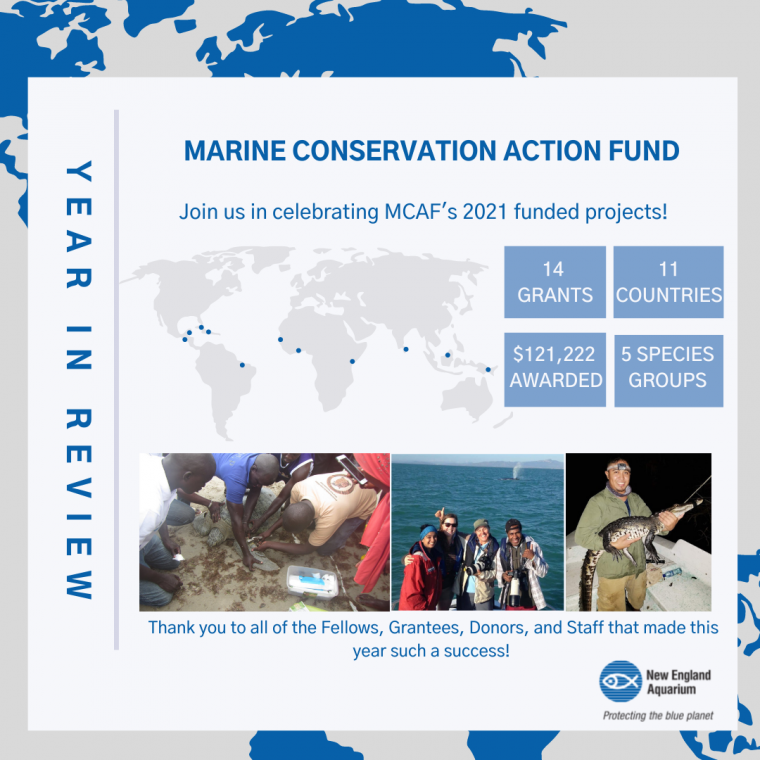
As we head into a new year, we reflect on everything the grantees and fellows of the Marine Conservation Action Fund (MCAF) accomplished in 2021 and celebrate the grants that MCAF has funded. In 2021 we were thrilled to support a total of 14 grants that totaled $121,222.48. These grants spanned 11 different countries and helped support conservation groups studying a variety of marine species.
One of the biggest problems facing the oceans is overfishing, and a critical step to conservation efforts is to survey and monitor important fish species to inform management and conservation practices. With support from MCAF, many conservation groups continued their important work filling knowledge gaps for critical fisheries, through tagging, monitoring, and population assessments. This included a grant to AquaLife Conservancy in Ghana which helped fund fisher surveys to study the population status of endangered elasmobranchs. Other grants funded meetings and workshops to support the conservation of the greenback parrotfish in Brazil, and the sustainable management of billfish in Kenya. Fishing is also one of the main livelihoods for locals in areas where this critical work is taking place. Many of the grants we funded this year, such as manta ray conservation in Indonesia, made sure livelihoods were supported and incentivized locals to get behind conservation efforts.
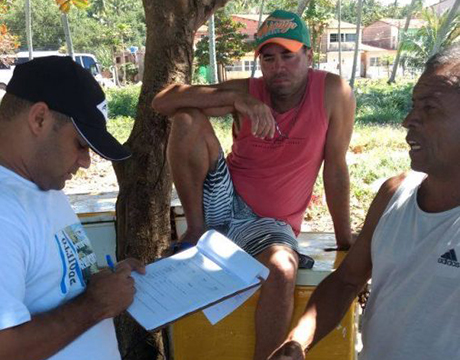
Fisher surveys on status of Greenback Parrotfish in Brazil (Photo Credit: Reef Conservation Project)
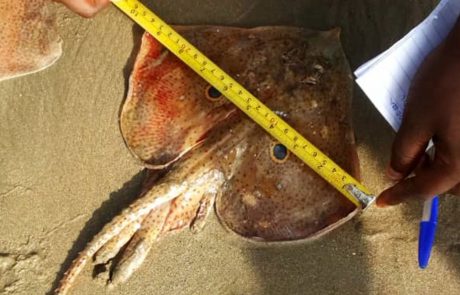
Scientists from AquaLife Conservancy measuring rays off the coast of Ghana (Photo Credit: AquaLife Conservancy)
This year we were honored to support many sea turtle conservation projects. Sea turtles are one of the most threatened marine species due to a variety of human-caused threats, including consumption and illegal trade of eggs, entanglement in fishing gear, and climate change. MCAF granted funds this year including steps to launch the first sea turtle rehabilitation and rescue center in western Africa through the African Chelonian Institute. This center will be a place for stranded sea turtles to recover before being released. Funds also helped continue sea turtle monitoring programs in Guatemala, which help inform conservation priorities, the establishment of MPAs, and other policy decisions.
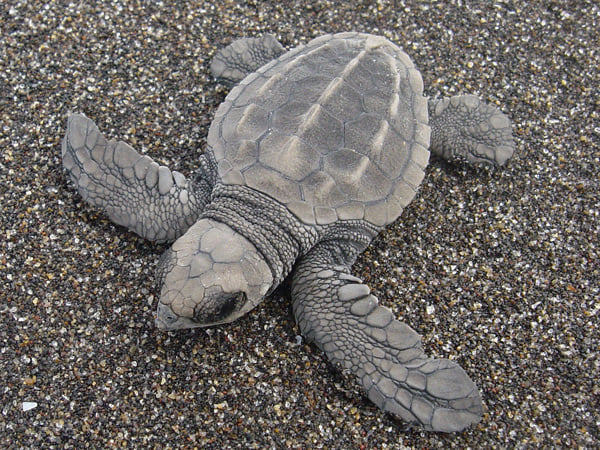
MCAF was also honored to support various grants to help vulnerable marine mammal populations. Australian humpback and snubfin dolphins are vulnerable inshore marine mammals found in the Kikori Delta of Papua New Guinea. This is the only location that this species of dolphins is found in the Pacific Islands, with small populations numbering 100-200 individuals respectively. A grant to the Snubfin Dolphin Project helped to continue monitoring efforts of this endemic species. Funds to the African Aquatic Conservation Fund also helped to continue threat assessments to manatees in Western Africa.
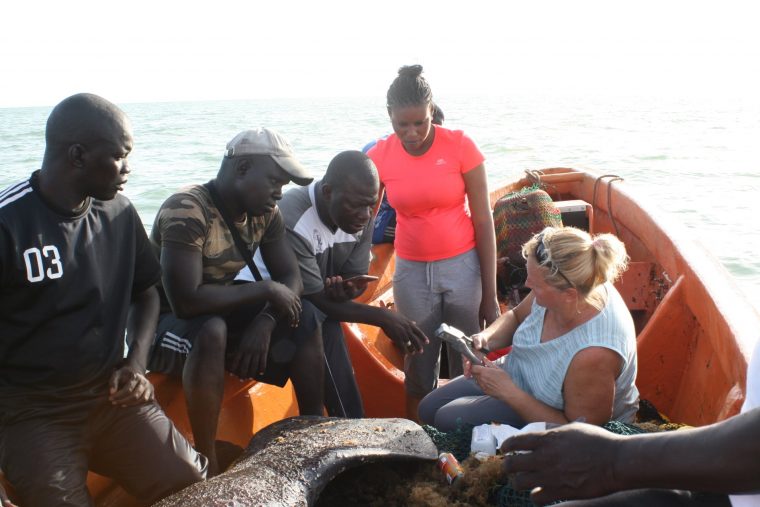
2021 was as an incredibly difficult year for many conservation organizations around the globe with reoccurring challenges brought on by the COVID-19 pandemic. An emergency operational grant to the Blue Resources Trust helped support operational costs to continue monitoring of elasmobranch species in Sri Lanka. Also, with support from MCAF’s emergency grant funds, which included an additional donation from an MCAF Committee member, Haiti Ocean Project (HOP) provided critical supplies and essentials to be distributed to the remote fishing village of Petit-Trou-de-Nippes, Haiti after the devastating earthquake this year. The residents of this village have been key partners with HOP on their conservation work with sea turtles and oceanic whitetip reef sharks.
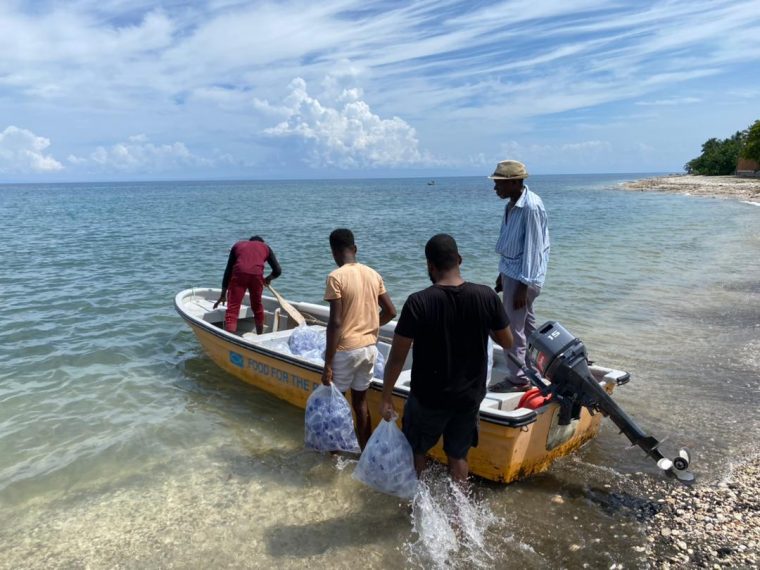
2021 also brought the launch of our Early Career Ocean Professionals (ECOP) program, with the understanding that for ocean conservation to continue, support for the next generation of local leadership must happen at the earlier stage in one’s career. As MCAF Fellow Dr. Asha de Vos says, “Every coastline needs a local hero.” We are excited to continue to support conservation leaders in training future leaders. 2021 MCAF supported 3 emerging ocean professionals. The first awardee, Jonathan Triminio is working with the Crocodile Research Coalition (CRC) and is mentored by Dr. Marisa Tellez. Jonathan’s project will be analyzing the impact of contamination on Morelet’s crocodile (Crocodylus moreletii) in northern Belize. The other two early-career ocean professionals (ECOP) awardees of 2021, are both from Oceanswell and are mentored by Dr. Asha de Vos. Hafsa Jamel’s project will be using geographic information systems (GIS) to map female-dominated spaces in small-scale coastal fisheries in Sri Lanka. Chiran Weerarathne’s project will be conducting biodiversity assessments of the shipwreck Thermopylae Sierra using Baited Remote Underwater Videos (BRUV’s).
This Fall our collaborative proposal with nine grantees and fellows that was focused on capacity development was endorsed by the UN Decade of Ocean Science for Sustainable Development. The United Nations has proclaimed a Decade of Ocean Science for Sustainable Development (2021-2030) to promote international collaborations to combat the ocean’s biggest challenges today. Through this project, we aim to scale up the support of local leaders to help them develop conservation capacity in fishers, youth, community members, and new emerging leaders in ocean conservation. We look forward to continuing to support this critical work in 2022 and thank all of the fellows, grantees, staff, and donors that made this year such a success!

